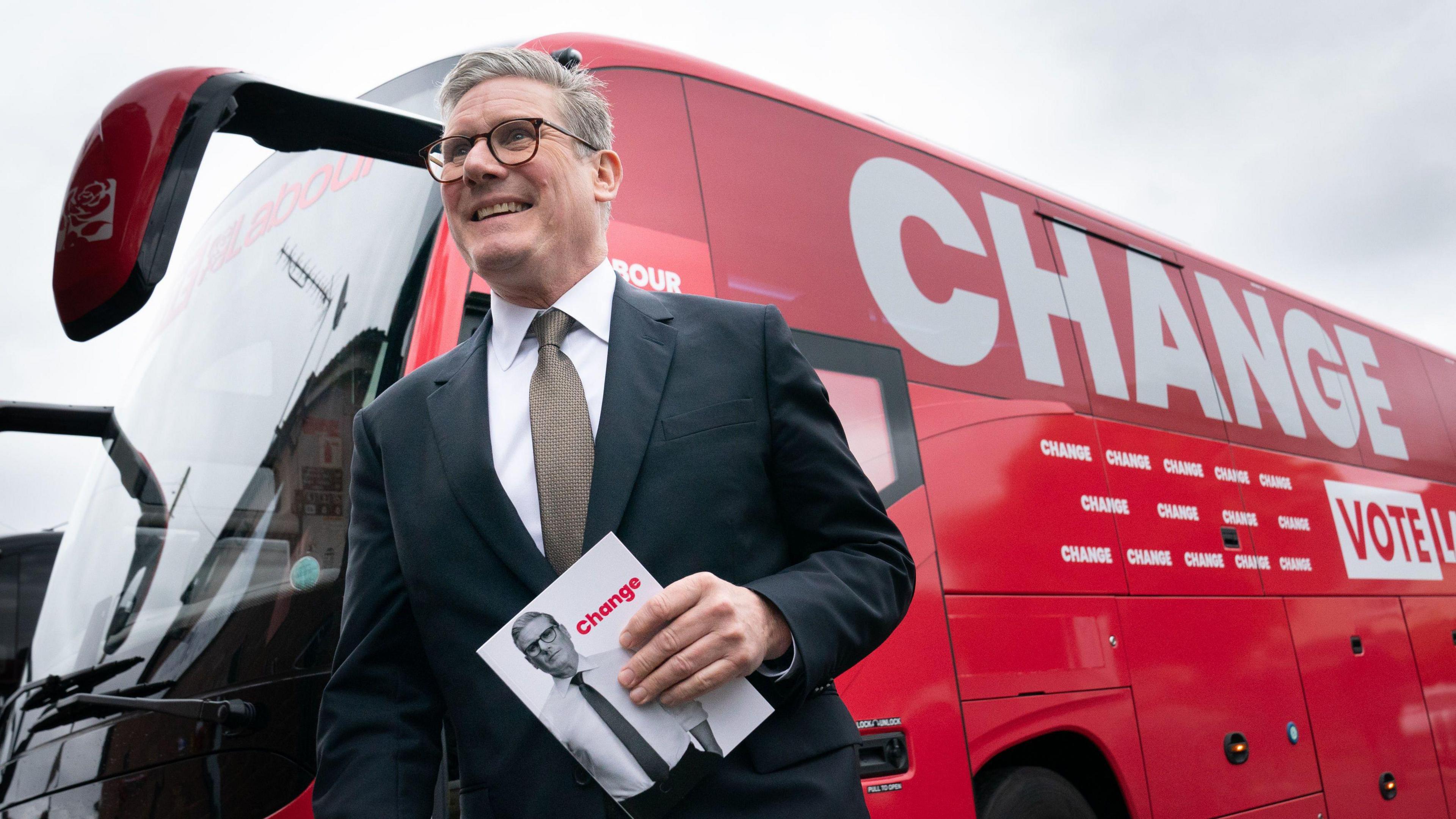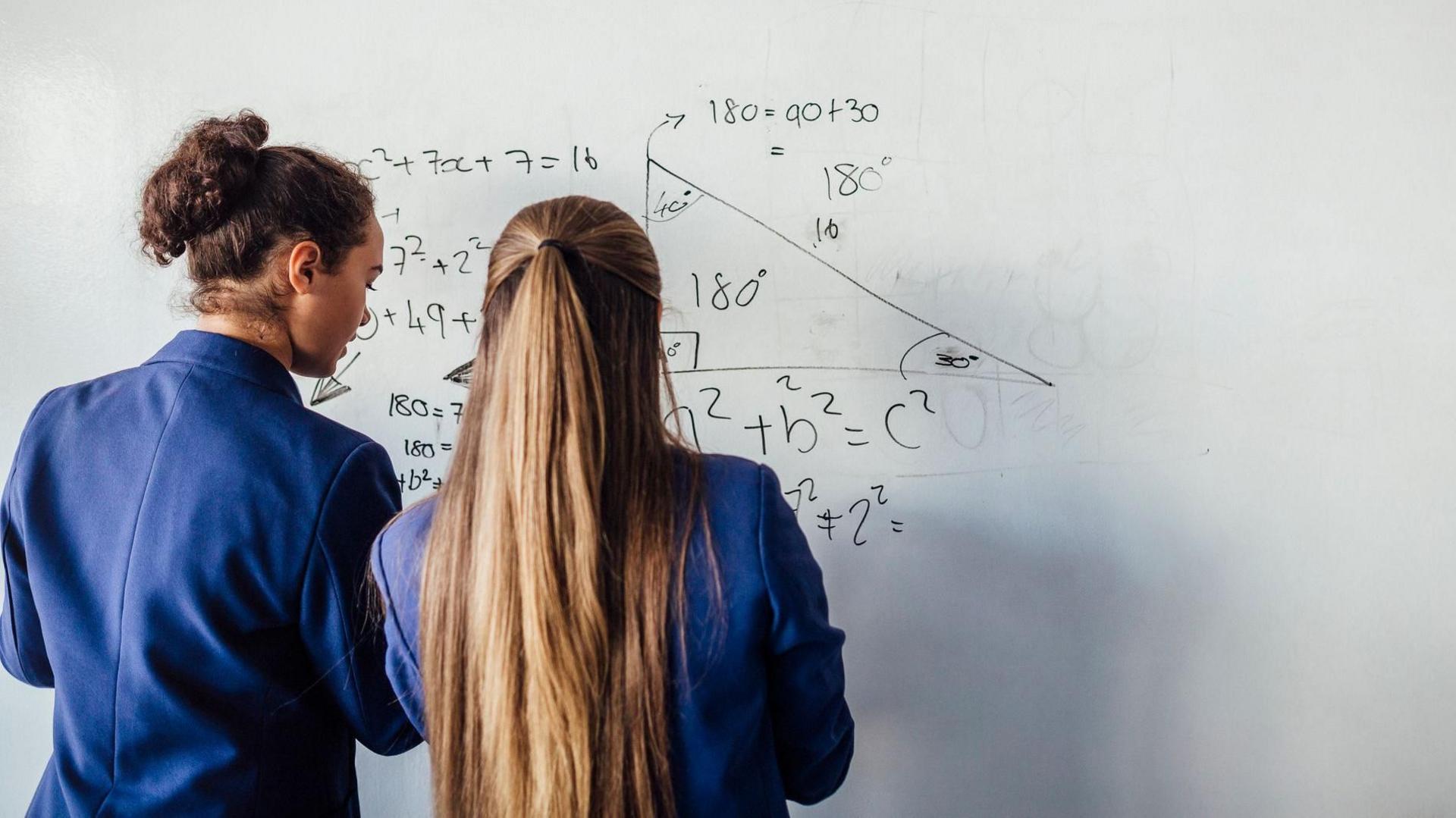Class size warning over VAT on private schools

St George's Preparatory School has 80 pupils who pay £9,500 per year to attend
- Published
The director of a private school in Lincolnshire said Labour's plans to add value added tax (VAT) to fees could lead to larger classes in state schools.
Mark Whelan of St George's Preparatory School in Boston said some parents could be forced to withdraw their children because of the increase in costs.
Under current legislation the price of sending a child to a fee-paying school does not include VAT, at a rate of 20%.
If Labour forms the next government they plan to change that and use the additional tax revenue to train more teachers, citing an estimated shortage of 6,000.
St George's has 80 pupils at a cost of £9,500 per pupil, per year.
Mr Whelan says the school is "very small" and "not elitist in the slightest" but would suffer financially if parents decided they could not meet an increase in fees.
"Parents make huge sacrifices to get their children into our school and because we're fee-paying the knock-on effect of 20% is absolutely vast," he said.
"Our maximum class size is 15. In the state sector it can be 30 and they're even talking about it going up to 36 because of any potential exodus from the private sector.
"Every child that comes to our school is saving the taxpayer £7,500 a year. So if 100 children leave the private sector and go to the state sector that's £750,000 that the Government has to find."
Private schools, sometimes called independent schools, charge fees for most of their students.
While some famous schools like Eton and Harrow charge about £50,000 a year, the average across the UK is about £15,000.
Private schools do not have to charge VAT on their fees because of a legal exemption for organisations providing education.
About half of England's private schools are also charities, so receive an 80% reduction on business rates (taxes on properties used for commercial purposes).
The Labour Party manifesto, external, pledges to end private schools' VAT exemption and business rate relief. It does not say it will remove their charitable status.
The Institute for Fiscal Studies (IFS) think tank calculates that Labour's policy would raise about £1.6bn per year,, external generating an extra £1.3-1.5bn to spend after the estimated cost of accommodating children switching from private to state education.
That could allow a 2% increase in state school spending in England.
Conservative leader Rishi Sunak has said that he disagrees with Labour's plans: "People who work hard and aspire to provide that education for their kids should have that freedom."
He previously said the policy was part of a "class war" to "punish" aspirational parents.
Lib Dem leader Ed Davey said he has "never thought in principle that VAT should be applied to education".
Reform UK said it would give private schools tax relief of 20% and put no VAT on fees, to "incentivise" parents to choose independent schools. It says this will "significantly ease pressure on state schools and improve education for all".
The Green Party promises to remove private schools' charitable status.
Follow BBC Lincolnshire on Facebook, X (formerly Twitter), external, and Instagram. Send your story ideas to eastyorkslincs.news@bbc.co.uk, external
Related topics
More stories about
- Published16 June 2024

- Published15 May
